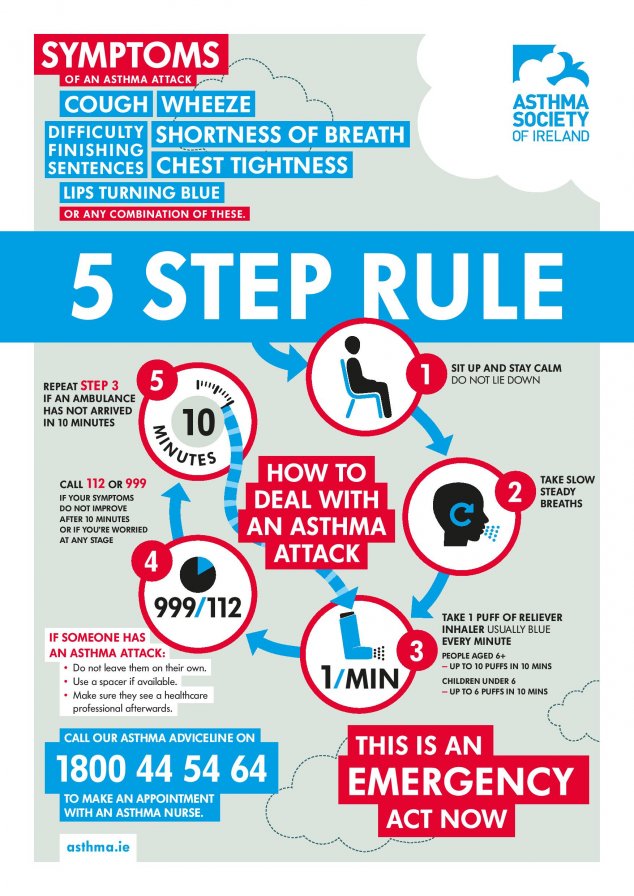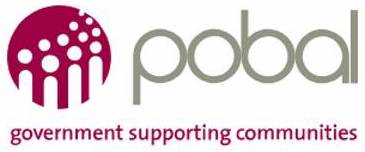Emergency hospital admissions for children with asthma increase significantly in the month of September.
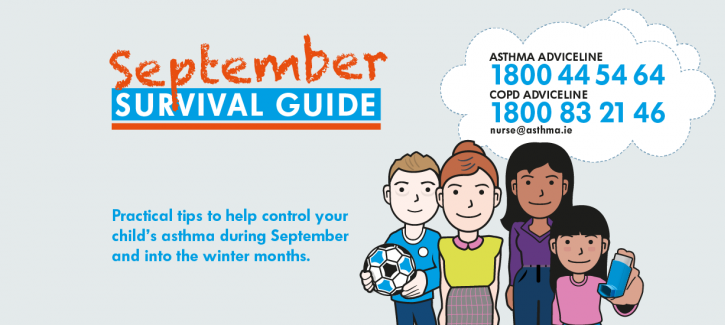
To combat this rise the Asthma Society of Ireland have released their September Survival Guide. This guide is intended for parents of children with asthma, to give them practical tips they can use to decrease their child's chances of ending up in hospital in September.

September Survival Guide
Get the basics right:
- Use the inhaler technique videosavailible here on the Asthma Society's website
- Make sure your child carries their reliever inhaler (usually blue) at all times
- Check that they take their medication every day with a fridge planner
- Leave a spare reliever inhaler in the school, with their name clearly labelled
- If your child is participating in PE or other activities, pop a reliever inhaler and spacer in their bag
- Never send a sick child to school
- Show them how to wash their hands correctly and explain why this is so important
- If you have an older child/teenager, they often require extra supervision and cannot be relied on to self-medicate independently - put systems in place as they may avoid taking medication
Getting help from your healthcare professional:
- Get your child’s asthma reviewed by your GP in September
- Update your child’s Asthma Action Plan if your child does not have one, put one in place. These are available at asthma.ie or you can call 1800 44 54 64 to have a copy sent to you
- Call the free Asthma Adviceline on 1800 44 54 64 to discuss your child’s asthma management with a respiratory nurse. Send any follow up questions to the
- Asthma Society’s Facebook or email nurse@asthma.ie
- Ensure your child has received the flu vaccine
Talk to your school and teacher:
- Visit the school and make sure your child’s teacher is aware that they have asthma
- Explain what their triggers are and what to do if your child has an asthma attack
- Check if there is a School Asthma Policy in place
- If your child is starting a new school, speak to teachers about your child’s asthma
Contact the Asthma Society:
- Our asthma nurses can help you manage your child’s asthma
- We can send teachers our Asthma Friendly School resources or
- details on our Asthma Friendly Schools programme
- We will send you our Asthma Attack cards/posters which show you how to use the 5 Step Rule
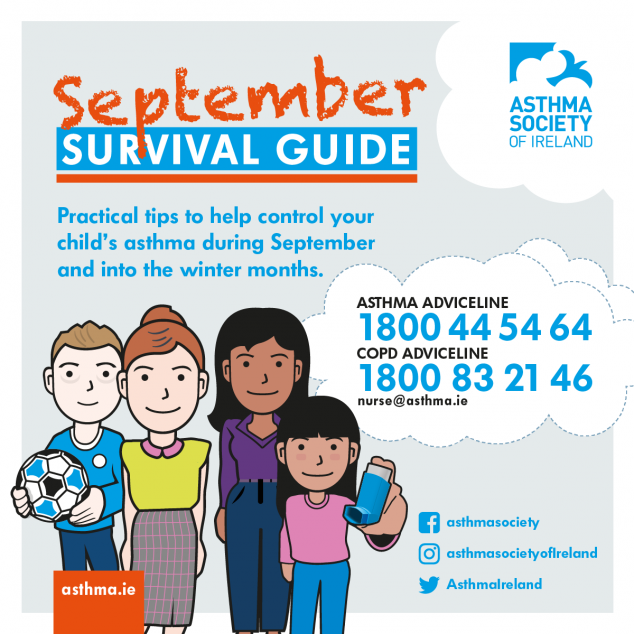
The message from the Asthma Society of Ireland is simple: Makre sure your child's asthma is controlled at this particularly dangerous time of the year.
CEO of the Asthma Society of Ireland, Sarah O'Connor, said: "September is a particularly risky time for children with asthma. Doctors see a notable increase in asthma attacks and asthma-related hospital admissions, especially in children returning to school. But there are practical steps parents can take to help reduce the chance of their child needing hospital care. The first action parents should take is to call the Asthma Society’s FREE Asthma and COPD Adviceline on 1800 44 54 64 and speak to one of our specialist nurses about measures they can take to manage their child’s asthma effectively. Parents should also refer to the Asthma Society’s “September Survival Guide” which sets out every step parents can take to help avoid hospital admissions.”
Asthma Friendly Schools Programme
At this time of year we suggest getting in contact with us and arranging a comprehensive FREE education sessions to schools to help parents and teachers who wish to learn more about managing asthma in children. The 1.5 hour session, which is facilitated by an asthma nurse specialist, covers the following:
- What is asthma
- How to recognise if a student has asthma
- Asthma triggers
- Asthma medications at school
- Inhaler technique
- Exercising with asthma
- What to do in an asthma attack
- Guidelines for developing a school asthma policy and an asthma record sheet for students
To further help and support children with asthma we also run an Asthma Friendly Schools Programme. The award recognises the valuable role that school plays in supporting and empowering students with asthma and provides them with a comprehensive programme of supports to do so.
Getting an Inhaler in your Child's Classroom
Over the past year we've been recieveing messages from parents, teachers and other school staff asking how they would get a reliver inhaler in their school incase of an asthma emergency. They found the whole inhaler procurment procees very confusing.
We've created a guide that explains how a teacher can do so. We suggest that parents with children with asthma give the guide to thir child's teacher.
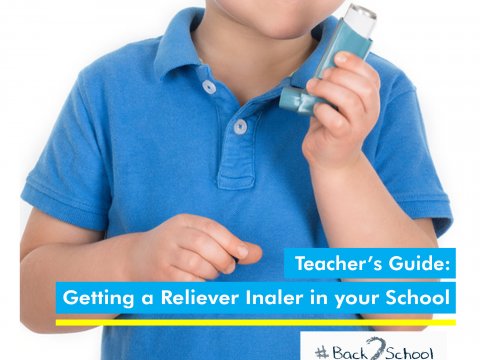
This document explains how a teacher can be trained in reliever inhaler administration, how a school can register to be granted permission to do so, and how to get a reliever inhaler in the school.
An Asthma Attack:
This Septmeber it is essential that you and your teacher know the steps to take if your child has an asthma attack. An asthma attack is a medical emergency. If your child experiences an attack, make sure they see a GP. An asthma attack can be fatal. One person dies every six days from asthma. In the event of an asthma attack, follow the “5 Step Rule”:
- Stay calm. Sit up straight - do not lie down.
- Take slow, steady breaths/
- Take one puff of your reliever inhaler (blue) every minute. Use a spacer if available.
- People over 6 years can take up to 10 puffs in 10 minutes
- Children under 6 years can take up to 6 puffs in 10 minutes
- Call 112 or 999 if your symptoms do not improve after 10 minutes
- Repeat Step 3 if an ambulance has not arrived in 10 minutes
